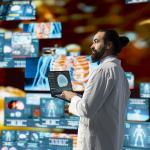The University of Colorado has entered into an agreement with OpenAI to provide secure, institutionally controlled access to ChatGPT EDU for students, faculty and staff across all four campuses and the CU system office, university leaders announced.
Kerry Tipper didn’t take a straight line to the University of Colorado. Raised in Costa Rica, Mexico and the United States, she learned early the value of language, identity and perspective as the daughter of a teacher and a military veteran. As CU’s vice president of University Counsel and the system’s chief legal officer, Tipper serves as the top legal adviser for the university, providing leaders with legal insight, political experience and strategic guidance to help them navigate complex decisions while prioritizing the university’s mission and people.










